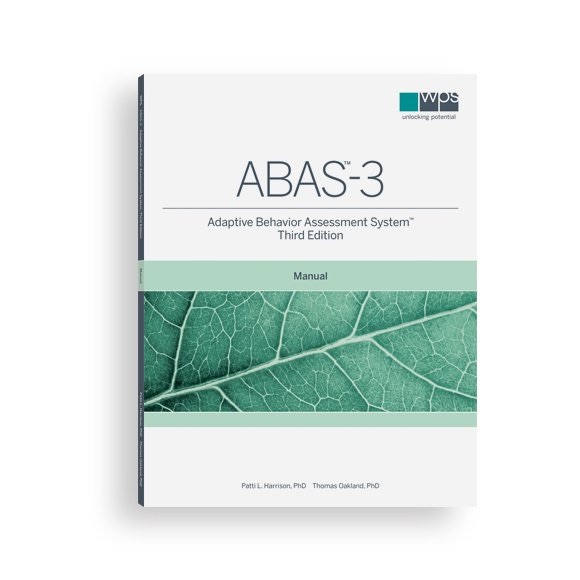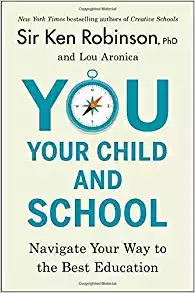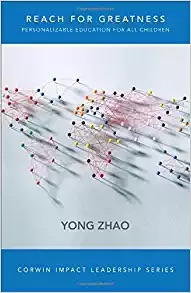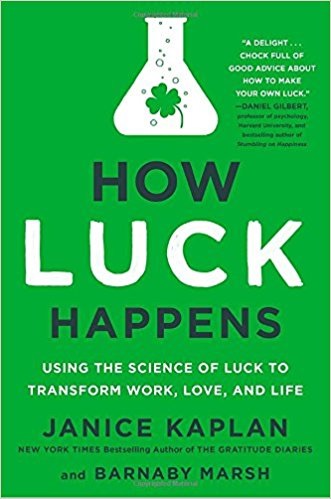Author Archive
Tuesday, May 22nd, 2018
Illustrating the Flexibility of ABAS-3 to Diagnose Individuals with Adaptive Skills Limitations by Patti Harrison, PhD and Thomas Oakland, PhD provides a complete assessment of adaptive skills across the lifespan from birth to 89 years. Please share this with the people at your skill who are responsible for doing this type of assessment. Parents who homeschool thier children should also take a look at this important product.
Introduction
- By nature, humans have skills that enable them to adapt to their environment. However, because of learning disabilities, developmental delays, or other environmental factors, some people struggle to develop their adaptive skills and need intervention.
- The ABAS-3, or the Adaptive Behavior Assessment System, enables professionals to identify these limitations and create intervention programs that assist children and adults with developing the adaptive skills necessary to function in their everyday environments.
- The ABAS-3 can help increase an individual’s independence and improve social behaviors. Assessing a person’s ability to function independently enhances their quality of life and enables them to continue into adulthood with the skills they need to perform at work, school, and home.
Diagnosing Adaptive Skills Limitations
- Clinicians, school psychologists, and other mental health professionals use the ABAS-3 to diagnose many different disorders. Included are cerebral palsy, emotional disturbance, autism spectrum disorder and intellectual disabilities.
- The ABAS-3 uses tests to measure IQ, visual-spatial processing, knowledge, working memory, and fluid reasoning. From these scores, professionals can measure an individual’s achievement in specific areas and establish helpful interventions.
- The ABAS-3 can identify strengths and weaknesses, document progress over time, determine eligibility for services like disability benefits, or evaluate the person’s ability to live and work independently. From this information, a clinician can make a diagnosis and establish a treatment plan.
The Flexibility of ABAS-3 to Diagnose
- The ABAS-3 has the ability to help evaluate people with a wide range of disorders, and because it’s so versatile, it has a lot of flexibility to identify adaptive skills limitations. For instance, school psychologists can use the ABAS-3 to recognize and assess significant developmental delays in children who are not meeting developmental milestones. This enables psychologists to identify limitations and recommend treatment plans or interventions.
- The ABAS-3 can also be used as an adaptive behavior assessment to plan and coordinate homeschool programs for children with special needs. With resources like the ABAS-3 at their disposal, parents who homeschool special needs children, along with a skilled professional, can now develop and follow programs benefiting their children’s development.
Other instances of the flexibility of the ABAS-3 and benefactors of intervention treatment plans include:
- Dealing with emotional disturbances
- Social and self-direction problems at home
- Children with visual impairment who need home interventions
- Problems with daily behaviors and practical skills
- Monitoring the transition from school to work environments
- Comprehensive assessments for people with ADHD who have diminished self-direction and self-care
- Rehabilitation after traumatic injuries
- Evaluating Alzheimer’s patients and improving functional behaviors
- Assessing the effects of mental health on daily functioning
- Monitoring change in daily routines due to medication
- The list goes on. The flexibility of the ABAS-3 to help diagnose individuals with adaptive skills limitations is proven in how school psychologists, clinicians, and other mental health professionals use the tests to evaluate their subjects.
WPS Publishing
Posted in Guest Posts | Comments Off on Illustrating the Flexibility of ABAS-3 to Diagnose Individuals with Adaptive Skills Limitations by Patti Harrison, PhD and Thomas Oakland, PhD
Monday, May 21st, 2018
You, Your Child, and School: Navigate Your Way to the Best Education by Sir Ken Robinson and Lou Aronica will help parents get the education their children need to live productive, fulfilled lives. If you or anyone you know has children in or approaching school, this is a must-read. Be sure to get a copy and perhaps some gift copies for parents you know. This is a sequel to Creative Schools. See my summary here.
1. Get Your Bearings
- As a parent your worry list includes too much testing, a narrow curriculum, individual attention, learning problems, medication, possible bullying, college costs, and finding a good job. Schools also might not value a child’s strength as they magnify their weaknesses, and make grades so important that students lose a sense of self. Children love to learn and are natural learners. For most of human history, children educated themselves as they learned from others. With today’s focus on test scores, children are more likely to dislike learning as they become less healthy and more sedentary.
- A focus on things like STEM is often done to the detriment of other subjects that are none the less important to our economy and society. Ken argues for ditching the acronyms. Current reforms have not budged achievement levels as they cause enormous stress and loss of enjoyment. Businesses want employees who are adaptable creative team players as the support reforms that suppress these very attributes. Vocational courses are also squeezed out as too many college graduates can’t find appropriate work.
2. Know Your Role
- Regardless of your family structure, the adults in a child’s life are responsible for meeting a variety of needs. Here Ken uses Maslow’s hierarchy, which includes physiological, safety, love and belonging, esteem, and self-actualization. The final need means becoming meaningfully fulfilled as a person. As for esteem, children need praise, but it shouldn’t be endless and it should be tempered with constructive criticism. Children know when they have worked hard. Parents should set boundaries and provide moral education. Help them learn how to make decisions and to find a sense of direction and purpose. This shows why one-size-fits-all education is wrong.
- Ken defines five parenting styles. It seems that the authoritative style is usually the best as it involves setting rules that can be justified to the child and the willingness to alter the rules it conditions permit. Students should be allowed to struggle at times so as to work to solve their own problems. Such rules are more like guidelines that are a work in progress, and they tend to produce the happiest children.
3. Know Your Child
- Research indicates the one’s genes and one’s environment have about the same impact on what one becomes. This means that parents have about half of the responsibility. The culture surrounding a child has a huge impact. Usually, money has a big role as poverty brings with it a great deal of stress for many reasons. Poor kids are six times more likely to be neglected or abused, live in neighborhoods that are less safe, have lower birth weight, learning disabilities, and emotional and behavioral problems. There is no single definition of intelligence and each child’s potential needs to be unlocked if they are to be successful.
Posted in Book Summaries, Education Books, Leadership Books | Comments Off on You, Your Child, and School: Navigate Your Way to the Best Education by Sir Ken Robinson and Lou Aronica
Thursday, May 3rd, 2018

Save These Fun Indoor Activities for a Rainy Day by Charles Carpenter offers some great advice for keeping children active and involved when they can’t go outside. While many kids spend too much time indoors, it’s important that they have fun and learn something interesting when outside is not an option. Thanks, Charles.
Introduction
- Spring outdoor fun is finally upon us. If you’re like many families, you’ve planned outdoor activities from now until the weather turns frosty once more. But what happens when rain interferes with those plans? If your kids have been forced to come back inside due to rainy weather, you’re probably looking for fun ways they can burn off some energy, especially if they just got an enticing dose of warm weather activity. Fortunately, there are plenty of indoor activities that can keep the kids engrossed and maybe even teach them a thing or two. The Internet is your best friend if you’re looking for activities that are wholesome and enriching. In the meantime, here are a few ideas to get you started.
Show Them Something New
- Kids love learning something totally new as long as it doesn’t involve schoolwork. Use the time to show your children how to do something that’s new and interesting to them. These don’t have to be involved in complex projects, just easy things that are helpful for kids to know, like how to make scrambled eggs using the microwave, or how to whip up a kid favorite like a peanut butter and banana sandwich. Show them how to sing in harmony using a favorite old song like “Row, Row, Row Your Boat,” or get everyone together for a music circle. No instruments to speak of in the house? No problem – you just have to know where to look. Plexus suggests gathering a few items you won’t mind getting banged on (think: wooden spoons, pots and pans, plastic tubs, and metal spoons) and create your own.
- If you have little ones who are still developing their manual dexterity, pull up a Youtube video on how to lace a pair of shoes. a pair of shoes. The blender is one of the easiest appliances for kids to learn, so why not use it to teach the little ones how to whip up a healthful and delicious smoothy, always a kid favorite. Challenge the group’s storytelling abilities by developing an impromptu story using contributions from everyone involved.
Indoor Gardening
- It may be too cold and wet outside to plant all your favorite vegetables and flowers, but that doesn’t mean you can’t do some good old-fashioned indoor gardening with the kids. It’s still possible to plant a few herbs and vegetables and watch your kids giggle with glee as their very own patch of garden takes shape. You can do it with some potting soil, a few flower pots and some grow lights. Talk your kids through the process of planting and why it’s so important to keep plants watered and near a light.
Fun Indoor Exercise
- Get the little ones up and moving with a Youtube exercise video. Check out this exercise routine, which allows your kids to get moving while learning about animals from around the world. Youtube is also a great source for teaching kids about music. There are many videos that teach children music essentials in a fun and engaging way. If you have a piano at home, you have a great opportunity to give your kids a hands-on music lesson.
Family Time Capsule
- Have your children put together a family time capsule by writing down their favorite foods, television shows, movies, video games, favorite music and any instruments they may be learning. Take pictures of each, as well as a family picture, and put it all together in a box or large bag. Sock it away in a secure location (not too secure – you don’t want to lose or forget about it), and plan on breaking it open in five or ten years. Use this fun little project to encourage your kids to talk about what they’d like to be doing in the future, where they’d like to be going to school, and how they’ll keep in contact with their friends.
Get Your Art On
- Nothing keeps kids busy quite like drawing, painting or making art using their favorite medium. Kick things up a notch by having your kids learn to create challenging and colorful patterns, which can help kids learn to solve problems, symmetry and improve their math skills. If cold and wet weather has your kids stuck inside again, fill the time with music, art, dancing, exercise and new skill activities. Children learn best when they’re having fun, so emphasize activities they’ll truly enjoy. Be sure to also look for opportunities to challenge children to come up with their own activities. You might learn something new, too.
Charles Carpenter
- Charles created HealingSounds.info. He believes in the power of music and sound as a healing tool. He is based in San Antonio, Texas. Charles Carpenter can be reached at information@healingsounds.info.
Posted in Guest Posts | Comments Off on Save These Fun Indoor Activities for a Rainy Day by Charles Carpenter
Monday, April 30th, 2018
Reach for Greatness: Personalizable Education for All Children by Yong Zhao argues for a transformation of our schools from a focus on deficits and remediation to a focus on strengths and making every student great in their own way. It makes a short and compelling case for giving students more control and more responsibility for their learning and their futures. Please grab a copy and send one to any policymaker you know.
Introduction
- Yong uses his own story about how he wasn’t good at farming chores and that his father had the good sense to send him to school. At the time he was also able to avoid subjects he wasn’t good at or not interested in. This allowed him to leave China for the US and to become a college teacher. He compares this to our system that rather than focusing on student strengths focuses on their deficiencies. The system assumes that every student should learn the same knowledge and skills (standards) and that they should all demonstrate the same level of proficiency.
- While federal mandates have changed a bit, there is still an unreasonable focus on closing achievement gaps. He maintains that achievement gap mania has changed America for the worse. Changes in society continue to redefine the knowledge and skills that will be useful as some skills become obsolete. Humans are differently talented so we need to stop preparing students to become a homogeneous group of average individuals who are mediocre at everything but great at nothing. We need to begin helping everyone become great.
1. The Ambitious Pursuit of Mediocrity: How Education Curtails Children’s Potential for Greatness
- Our education system is a meritocracy that rewards students who do the best on the tests they take in a limited number of subjects. If you can jump through the required hoops on schedule, you will do fine. If your interests and talents don’t fit the curriculum, it will damage your confidence and self-esteem, and your talents are likely to be wasted. Ironically, meritocracy leads to mediocrity.
- The tests are norm-referenced so if one student goes up another goes down. (Doug: This is known as a zero-sum game. If you see percentiles, that is what is happening.) The tests only assess the ability to take the tests. As a result, Einstein and your top physics student both get the same grades. (Doug: There is no way to spot outliers.) Merit is defined a one’s ability and interest in performing well on tests in a few subjects. Thankfully, a growing number of schools have begun to implement programs such as genius hours and maker spaces, but they are still limited in scale and reach.
2. All Children Are Above the Average: The Potential for Greatness
- While all children cannot be above average on any single scale, there are so many ways to be above average on something that Yong believes that all children can be above average at one or more things. It is up to the adults in their lives to help children find out just what their individual strengths and weaknesses are. Since everyone is unique, there really isn’t any such thing as an average person.
- Yong mentions a number of ways to judge ability. There is Howard Gardner’s multiple intelligence theory, Dan Pink’s left and right brain directed thinking, Goldberg’s personality traits, and Reiss’ passion and intrinsic drives desires. Talent, personality, and passion are foundational sources of strengths and weaknesses and they are enhanced or suppressed by experiences. As you look for potential for greatness, avoid applying a predetermined set of criteria to all students. This includes curriculum standards as a student’s strength may lie outside their narrow definition.
- All human beings possess creativity. This is the ability to come up with new ideas, methods, theories, concepts, and products. Every student has a combination of innate qualities and environmental experiences that helps turn her or him into a unique individual. When you look hard without preconceived views, you will find them in all children.
Posted in Book Summaries, Education Books, Leadership Books | Comments Off on Reach for Greatness: Personalizable Education for All Children by Yong Zhao
Wednesday, April 18th, 2018
How luck Happens: Using the Science of Luck to Transform Work, Love, and Life by Janice Kaplan and Barnaby Marsh lays the groundwork for the new field of luck studies. This is a fine piece of qualitative research that can help you and your kids understand how to lead a luckier and happier life. Parents and leaders alike should read this groundbreaking book to help themselves and everyone they touch.
Preface
- We start with the legend of Harrison Ford who was working as a carpenter at the home of the young director George Lucas who was working on his first film American Graffiti. George got to know him a bit and gave him a small part. The rest is history. Certainly, Mr. Ford got lucky so the big question is how do we make our own luck? The idea is to put enough of the right pieces in place so you can take some of the onus off of random chance. Time to join the thrilling journey of discovery that Janice and Barnaby took during the last year that they claim will help you learn the approaches they uncovered that are almost guaranteed to bring more luck your way.
Part One – Understanding Luck – 1. Prepare to Be Lucky
- Shortly after their research began, Janice realized that real luck happens at the intersection of chance, talent, and hard work. Chance is never enough. You also need a bias towards action. You have to be willing to try as you focus on the things that you can control. Since this field is brand new, Janice and Barnaby couldn’t comb through existing research. They had to do their own.
2. Some People Have All the Luck—And You Can Be One of Them
- Most people (67%) think that working hard contributes to lucky outcomes. They (67%) also think that you can get lucky by being curious. Here we have a story about a girl who found a four-leaf clover, a one in 10,000 chance. Her friends told her how lucky she was, but she made her own luck by being persistent and knowing that there would be a lot of failure along the way. Getting the right information is also necessary, which might mean just asking one more question. The most important ability may be to pay attention and notice opportunities. Good attention is also flexible, which allows us to switch between narrow and open focus.
3. Pick the Statistic You Want to Be
- While about one-third of Americans are obese, this doesn’t mean that your odds of being obese are one out of three. This is a clear example of where you can make your own luck depending on the diet and exercise program you choose. It’s important to take risks, but not all risks are worth taking so you must size up the risks prior to forging ahead. Improbable things are likely to happen and they are not likely to happen to people who don’t spend some time outside of their comfort zone.
Posted in Book Summaries, Education Books, Leadership Books | Comments Off on How luck Happens: Using the Science of Luck to Transform Work, Love, and Life by Janice Kaplan and Barnaby Marsh










